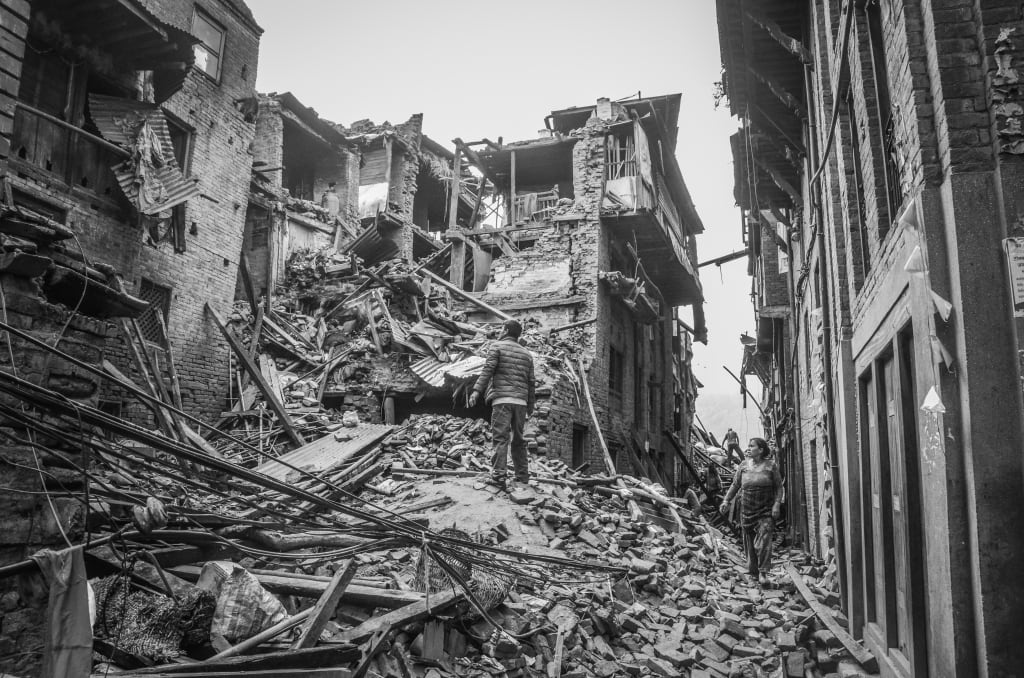"Devastating Earthquake strikes Turkey: A call for greater disaster preparedness and international support"
"Assessing the impact and efforts to rebuild after the 6.3 magnitude earthquake in Bingol"

On February 6, 2023, Turkey was struck by a devastating 6.3 magnitude earthquake in the eastern province of Bingol. The earthquake caused widespread damage to buildings and infrastructure, leaving many residents homeless and in desperate need of aid. This latest disaster comes just days after another earthquake hit the eastern province of Elazig, which claimed the lives of over 100 people and injured over 1,000 others.
The earthquake struck the province at 1:32 PM local time, causing panic and fear among the residents. According to the Turkish disaster and emergency management agency (AFAD), several buildings have been severely damaged or destroyed, and many people have been trapped under the rubble. The agency has activated its emergency response teams and has dispatched rescue teams to the affected area to search for survivors and provide medical aid to the injured.
The earthquake was felt in many parts of the country, including the capital city of Ankara and neighboring countries such as Georgia and Armenia. The Turkish government has declared a state of emergency in the affected area, and President Recep Tayyip Erdogan has pledged to do everything in his power to support the rescue efforts and provide assistance to those affected.
Rescue teams from all over Turkey and neighboring countries have been dispatched to the affected area to search for survivors and provide medical aid to the injured. The Turkish military has also deployed troops to help with the rescue efforts and provide security to the affected region. Despite the efforts of the rescue teams, the difficult terrain and the rubble of the collapsed buildings have made the search and rescue operation extremely challenging.
The international community has also rallied around Turkey in its hour of need, with several countries and organizations offering aid and support. The European Union and the United States have offered to provide humanitarian aid, and the Red Cross and other international organizations have also dispatched teams to assist with the rescue and recovery efforts.
The earthquake in Turkey serves as a stark reminder of the importance of disaster preparedness and the need for countries to invest in infrastructure that can withstand natural disasters. While it is impossible to prevent earthquakes from occurring, steps can be taken to minimize their impact and ensure that the affected communities can quickly recover from the disaster.
In the aftermath of the earthquake, the Turkish government has promised to support the affected communities and rebuild the damaged infrastructure as quickly as possible. This will likely be a long and challenging process, but with the support of the international community, it is possible to help Turkey overcome this disaster and emerge stronger and more resilient than before.
The recent earthquakes in Turkey serve as a reminder of the fragility of life and the importance of coming together as a global community to support those in need. Our thoughts and prayers are with the people of Turkey as they navigate this difficult time, and we stand ready to offer any assistance and support that we can.
In conclusion, the earthquake in Turkey has once again highlighted the need for greater disaster preparedness and investment in infrastructure that can withstand natural disasters. The international community must come together to support the affected communities and help them recover from this tragedy. The people of Turkey have shown great resilience and strength in the face of this disaster, and it is our hope that they will be able to rebuild and recover as quickly as possible.
The earthquake in Turkey has once again brought the issue of disaster preparedness to the forefront, and has raised important questions about how we can better prepare for and respond to natural disasters. The effects of this latest disaster are far-reaching, and will have a lasting impact on the people of Turkey for years to come.
One of the key challenges in the aftermath of the earthquake has been the lack of access to basic necessities such as food, water, and shelter for those who have been affected. With many buildings destroyed and infrastructure severely damaged, it has been difficult for aid organizations to reach those in need and provide them with the support they need. The Turkish government has been working closely with the international community to coordinate relief efforts and ensure that aid reaches those who need it most.
In addition to providing immediate relief, it is also important to consider the long-term recovery needs of the affected communities. This includes not only rebuilding homes and infrastructure, but also addressing the psychological and emotional impact of the disaster. Trauma and anxiety are common among those who have experienced a natural disaster, and it is important to provide them with the support they need to recover and heal.
The earthquake in Turkey serves as a reminder of the importance of investing in disaster preparedness and response efforts. This includes not only building infrastructure that can withstand natural disasters, but also investing in early warning systems and disaster response plans that can help minimize the impact of future disasters. In addition, it is important for governments to work closely with the international community to ensure that aid and support are available in the aftermath of a disaster.
The recent earthquakes in Turkey have also brought attention to the importance of seismic activity monitoring. Earthquakes are a natural phenomenon that can have a profound impact on communities, and it is important for governments to have the tools and resources to monitor and predict earthquakes in order to minimize the impact on their citizens. This includes investing in modern technology and scientific research, as well as providing education and training for those who will be responding to future disasters.
In conclusion, the earthquake in Turkey serves as a wake-up call for the international community to prioritize disaster preparedness and response efforts. While it is impossible to prevent earthquakes from occurring, it is possible to minimize their impact and ensure that communities are better equipped to respond to and recover from these disasters. With the support of the international community, it is possible to help Turkey rebuild and recover from this tragedy, and to create a safer and more resilient future for all.
About the Creator
Enjoyed the story? Support the Creator.
Subscribe for free to receive all their stories in your feed.






Comments (3)
nice
İts perfect and cool
İts cool and good